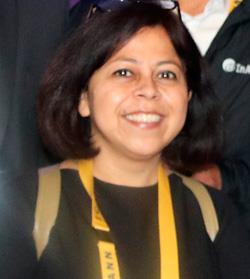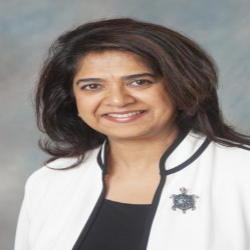Digital Cooperation and Empowerment: Insights and Best Practices for Strengthening Multistakeholder and Inclusive Participation
Internet Corporation for Assigned Names and Numbers
Session 425
Effective digital cooperation hinges on balanced, diverse and inclusive representation from all stakeholders, including governments, international organizations, the private sector, civil society, academia, and the technical community. True inclusivity and meaningful participation extend beyond enabling connectivity and skills development; they require active participation in the operational management and governance of digital infrastructure. This session will discuss some of the key insights, upcoming opportunities and best practices from technical communities and intergovernmental organizations for strengthening multistakeholder participation.
Panelists representing diverse stakeholder groups will share insights on the multistakeholder digital ecosystem and global and regional perspectives.




.png?maxwidth=250)
.png?maxwidth=250)
-
 C1. The role of governments and all stakeholders in the promotion of ICTs for development
C1. The role of governments and all stakeholders in the promotion of ICTs for development
-
 C2. Information and communication infrastructure
C2. Information and communication infrastructure
-
 C3. Access to information and knowledge
C3. Access to information and knowledge
-
 C4. Capacity building
C4. Capacity building
-
 C6. Enabling environment
C6. Enabling environment
-
 C8. Cultural diversity and identity, linguistic diversity and local content
C8. Cultural diversity and identity, linguistic diversity and local content
-
 Goal 4: Ensure inclusive and equitable quality education and promote lifelong learning opportunities for all
Goal 4: Ensure inclusive and equitable quality education and promote lifelong learning opportunities for all
-
 Goal 8: Promote inclusive and sustainable economic growth, employment and decent work for all
Goal 8: Promote inclusive and sustainable economic growth, employment and decent work for all
-
 Goal 9: Build resilient infrastructure, promote sustainable industrialization and foster innovation
Goal 9: Build resilient infrastructure, promote sustainable industrialization and foster innovation
- Objective 1: Close all digital divides and accelerate progress across the Sustainable Development Goals
- Objective 2: Expand inclusion in and benefits from the digital economy for all
- Objective 3: Foster an inclusive, open, safe and secure digital space that respects, protects and promotes human rights